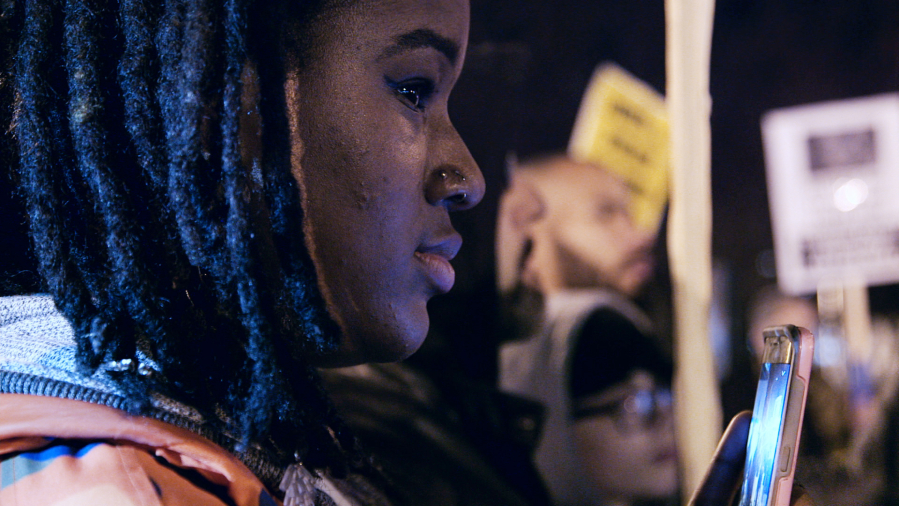Actress Sonja Sohn, who played Det. Kima Greggs on “The Wire,” has made a beautiful documentary, “Baltimore Rising,” about the city it was set in.
Set mainly among officials, activists and officers in the months between the April 2015 death of Freddie Gray after injuries sustained in police custody, and the end of the prosecution of the involved officers some 15 months later, it’s a documentary more intimate than informational. The basic facts of the case are here, but Sohn seems more concerned with putting you in a place among people than with creating the definitive document, pointing fingers or retrying the case.
Because the filmmaker keeps herself out of the picture, wanting to show what she saw rather than say what she thinks — or thinks you should think — “Baltimore Rising” is not precisely “about” anything. Rather, it invites you to think about a host of things: order and disorder, passion and prudence, parents and children, systemic oppression and individual initiative.
The film has a point of view, certainly. Sohn, who followed her years on “The Wire” by creating a youth outreach nonprofit, Rewired for Change, knows this territory well, but it’s not in the least polemical. It wants to move things forward with the force of art.



